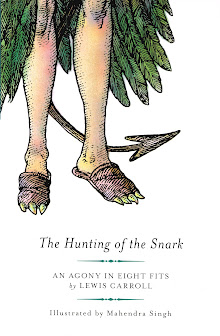
"For the Snark’s a peculiar creature, that won’t
Be caught in a commonplace way.
Do all that you know, and try all that you don’t:
Not a chance must be wasted to-day!
Our favorite poet and Eminent Victorian Lewis Carroll has given us the late 19th-century equivalent of certain ubiquitious American psychobabbitries : do all that you know and try all that you don’t.
A peculiar prescription for a peculiar creature, a call of sorts to a half-hearted High Anglican Debauchery aimed at the titillation of the thinking classes. And what titillates the thinking (and unthinking) classes the very most? What is it they dream of, with their eyes wide shut … is it the Female of the Species?
Most likely. And shame on ‘em too, boo hiss boo! Objectifying women with their shameless gaze! These Surrealists, they are a menace to polite society in every city and a blight upon the land in every which way.
They are utterly unlike the respectable, petit-bourgeois Protosurrealist Snark-Hunters whom we see above, scrupulously averting their reifying gaze from La Snarque Nue concealed from them in my forest of lines. Would it surprise you to learn that I have entirely drawn the above with my eyes also firmly shut, trusting only in the animal-instincts of my feral pen to guide me safely through the labyrinth of lines in which the Snark has so cunningly concealed herself?











